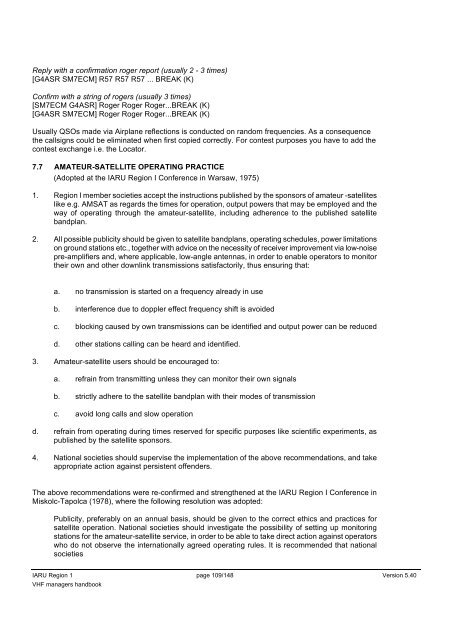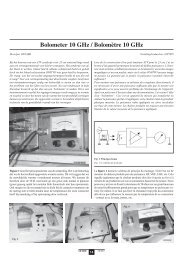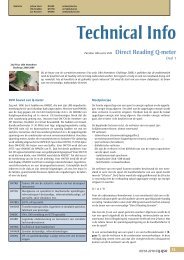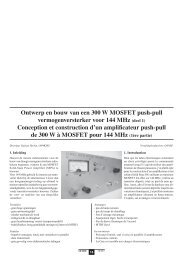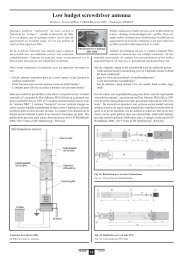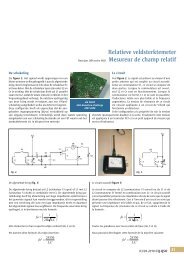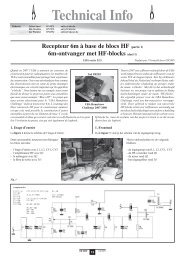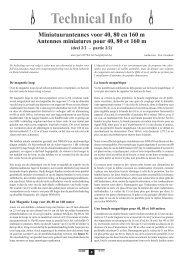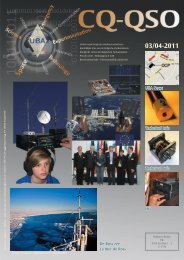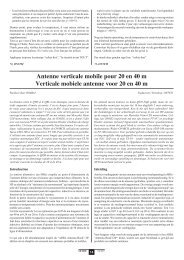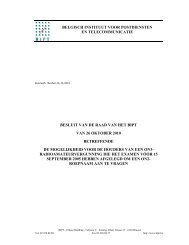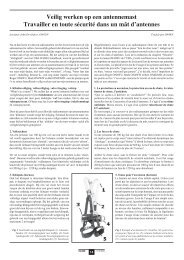IARU Region 1 VHF Managers Handbook - UBA
IARU Region 1 VHF Managers Handbook - UBA
IARU Region 1 VHF Managers Handbook - UBA
You also want an ePaper? Increase the reach of your titles
YUMPU automatically turns print PDFs into web optimized ePapers that Google loves.
Reply with a confirmation roger report (usually 2 - 3 times)<br />
[G4ASR SM7ECM] R57 R57 R57 ... BREAK (K)<br />
Confirm with a string of rogers (usually 3 times)<br />
[SM7ECM G4ASR] Roger Roger Roger...BREAK (K)<br />
[G4ASR SM7ECM] Roger Roger Roger...BREAK (K)<br />
Usually QSOs made via Airplane reflections is conducted on random frequencies. As a consequence<br />
the callsigns could be eliminated when first copied correctly. For contest purposes you have to add the<br />
contest exchange i.e. the Locator.<br />
7.7 AMATEUR-SATELLITE OPERATING PRACTICE<br />
(Adopted at the <strong>IARU</strong> <strong>Region</strong> I Conference in Warsaw, 1975)<br />
1. <strong>Region</strong> I member societies accept the instructions published by the sponsors of amateur -satellites<br />
like e.g. AMSAT as regards the times for operation, output powers that may be employed and the<br />
way of operating through the amateur-satellite, including adherence to the published satellite<br />
bandplan.<br />
2. All possible publicity should be given to satellite bandplans, operating schedules, power limitations<br />
on ground stations etc., together with advice on the necessity of receiver improvement via low-noise<br />
pre-amplifiers and, where applicable, low-angle antennas, in order to enable operators to monitor<br />
their own and other downlink transmissions satisfactorily, thus ensuring that:<br />
a. no transmission is started on a frequency already in use<br />
b. interference due to doppler effect frequency shift is avoided<br />
c. blocking caused by own transmissions can be identified and output power can be reduced<br />
d. other stations calling can be heard and identified.<br />
3. Amateur-satellite users should be encouraged to:<br />
a. refrain from transmitting unless they can monitor their own signals<br />
b. strictly adhere to the satellite bandplan with their modes of transmission<br />
c. avoid long calls and slow operation<br />
d. refrain from operating during times reserved for specific purposes like scientific experiments, as<br />
published by the satellite sponsors.<br />
4. National societies should supervise the implementation of the above recommendations, and take<br />
appropriate action against persistent offenders.<br />
The above recommendations were re-confirmed and strengthened at the <strong>IARU</strong> <strong>Region</strong> I Conference in<br />
Miskolc-Tapolca (1978), where the following resolution was adopted:<br />
Publicity, preferably on an annual basis, should be given to the correct ethics and practices for<br />
satellite operation. National societies should investigate the possibility of setting up monitoring<br />
stations for the amateur-satellite service, in order to be able to take direct action against operators<br />
who do not observe the internationally agreed operating rules. It is recommended that national<br />
societies<br />
<strong>IARU</strong> <strong>Region</strong> 1 page 109/148 Version 5.40<br />
<strong>VHF</strong> managers handbook


